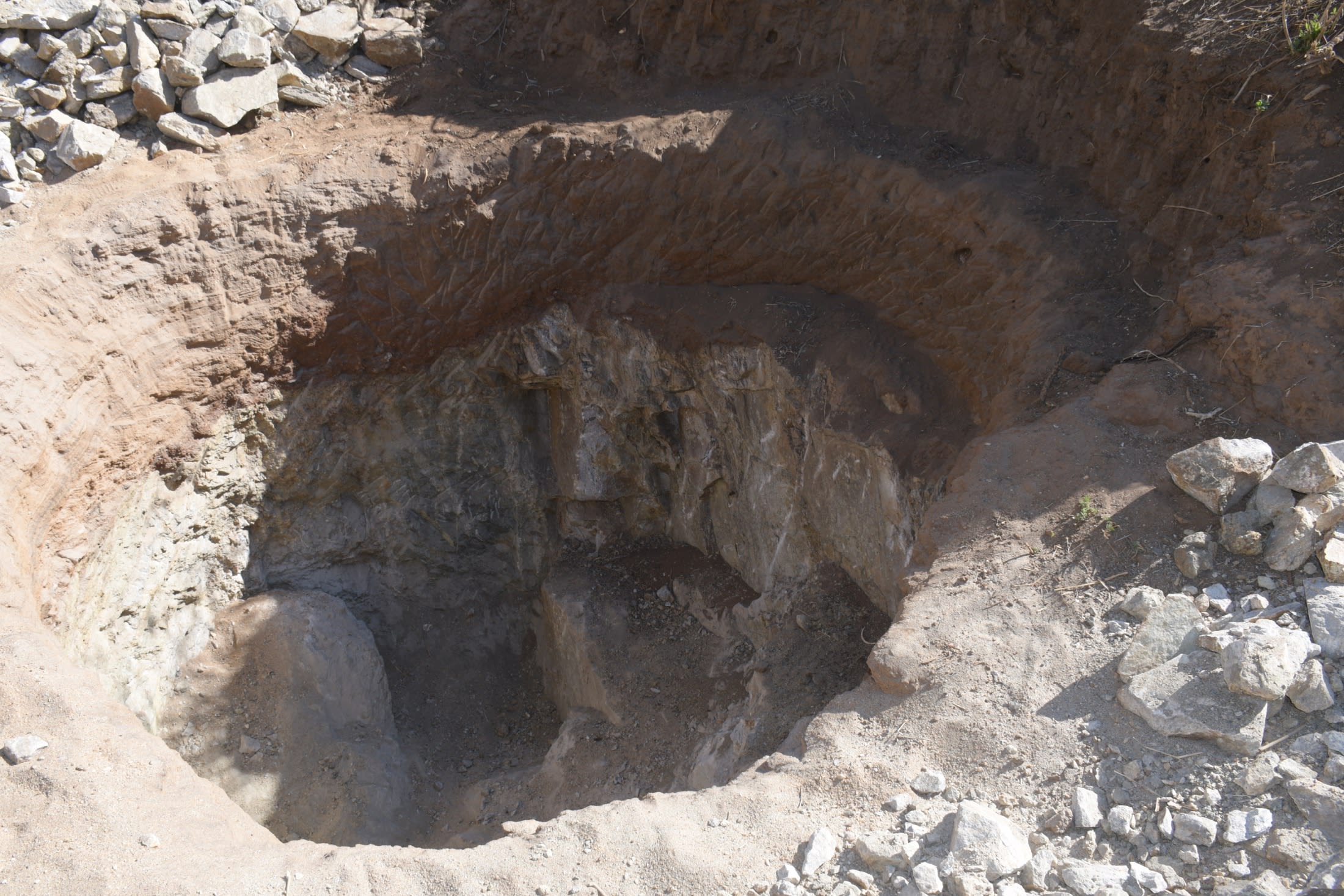Those close to the water sources in Thonoa Community are lucky: their trip to fill up their jerrycans only takes a half-hour to an hour. But, unfortunately, not everyone lives so close. For most of the 130 people in Thonoa, the journey to and from the water point—a distance of seven kilometers (4.34 miles)—takes around four hours. The area is hilly and brutally hot, which makes the journey that much harder.
The hand-dug well in the below picture might have once yielded water, but now offers only mud. Now, community members must seek water elsewhere: by digging scoopholes into dry riverbeds.

"I don't get enough water to drink, [or] for my cattle," said Lucy Kanini, a 42-year-old farmer (pictured below). "The water scarcity in this region has inconvenienced my efforts in farming because I cannot plant much crops during the dry months."

"I experience water scarcity problems because there is insufficient water at home for drinking and maintaining proper hygiene," said 14-year-old Caroline (pictured below). "I also have to carry water to school, which leads to exhaustion due to long distances."

During the dry season, life in Thonoa becomes even more difficult. The lack of rain leaves the rivers and crops dry. People who normally grow their own food can't irrigate their crops, often selling their livestock to get enough money to buy food and water.
"My parents' level of income reduces because they [cannot] cultivate crops during the dry season, which ultimately affects my studies," Caroline said. "They cannot raise enough [money for school] fees or [to] buy books."
The community members cannot practice proper dental hygiene and body care due to water insufficiency. Most members of the community are unable to clean their dishes or do laundry as often as they would like. Not only is this damaging to people's physical health, but also to their dignity as human beings.
"My family does not get enough water for hygiene and sanitation, which poses a threat to our health due to hygiene-related infections," Lucy said.
Caroline said: "The water from the scoop holes is contaminated, making me sick occasionally and unable to attend classes."
With a reliable source of water closer to them, Thonoa's community members will be better able to care for themselves and their loved ones.
Reliable Water for Thonoa
Our main entry point into Thonoa Community has been the Ndithi Tuinuke Self-Help Group, which is comprised of households that are working together to address water and food scarcity in their region. These members will be our hands and feet in both constructing water projects and spreading the message of good hygiene and sanitation to everyone.
Hand-Dug Well
This particular hand-dug well will be built adjacent to a sand dam project, which will supply clean drinking water once it rains. We have supplied the group with the tools needed for excavation. With the guidance of our artisans and mechanics, the excavated well will be cased, sealed with a well pad, and then finished with a new AfriDev pump.
Excavation takes a month or more on average, depending on the nature of the rock beneath. Construction of the well lining and installation of the pump takes 12 days maximum. The well will be lined with a concrete wall including perforations so that once it rains, water will filter in from the sand dam.
This well will bring clean water closer to families.
New Knowledge
These community members currently do their best to practice good hygiene and sanitation, but their severe lack of water has been a big hindrance to reaching their fullest potential.
We will hold hygiene and sanitation training sessions with the Self-Help Group and other community members to teach about important hygiene practices and daily habits to establish at the personal, household, and community level. This training will help to ensure that participants have the knowledge they need to make the most out of their new water point as soon as water is flowing.
One of the most important topics we plan to cover is the handling, storage, and treatment of water. Having a clean water source will be extremely helpful, but it is useless if water gets contaminated by the time it is consumed. We will also emphasize the importance of handwashing.
We and the community strongly believe that all of these components will work together to improve living standards here, which will help to unlock the potential for these community members to live better, healthier lives.
We typically work with self-help groups for 3 to 5 years on multiple water projects. We will conduct follow-up visits and refresher trainings during this period and remain in contact with the group after all of the projects are completed to support their efforts to improve sanitation and hygiene.




 Protected Dug Well
Protected Dug Well
 Rehabilitation Project
Rehabilitation Project





























